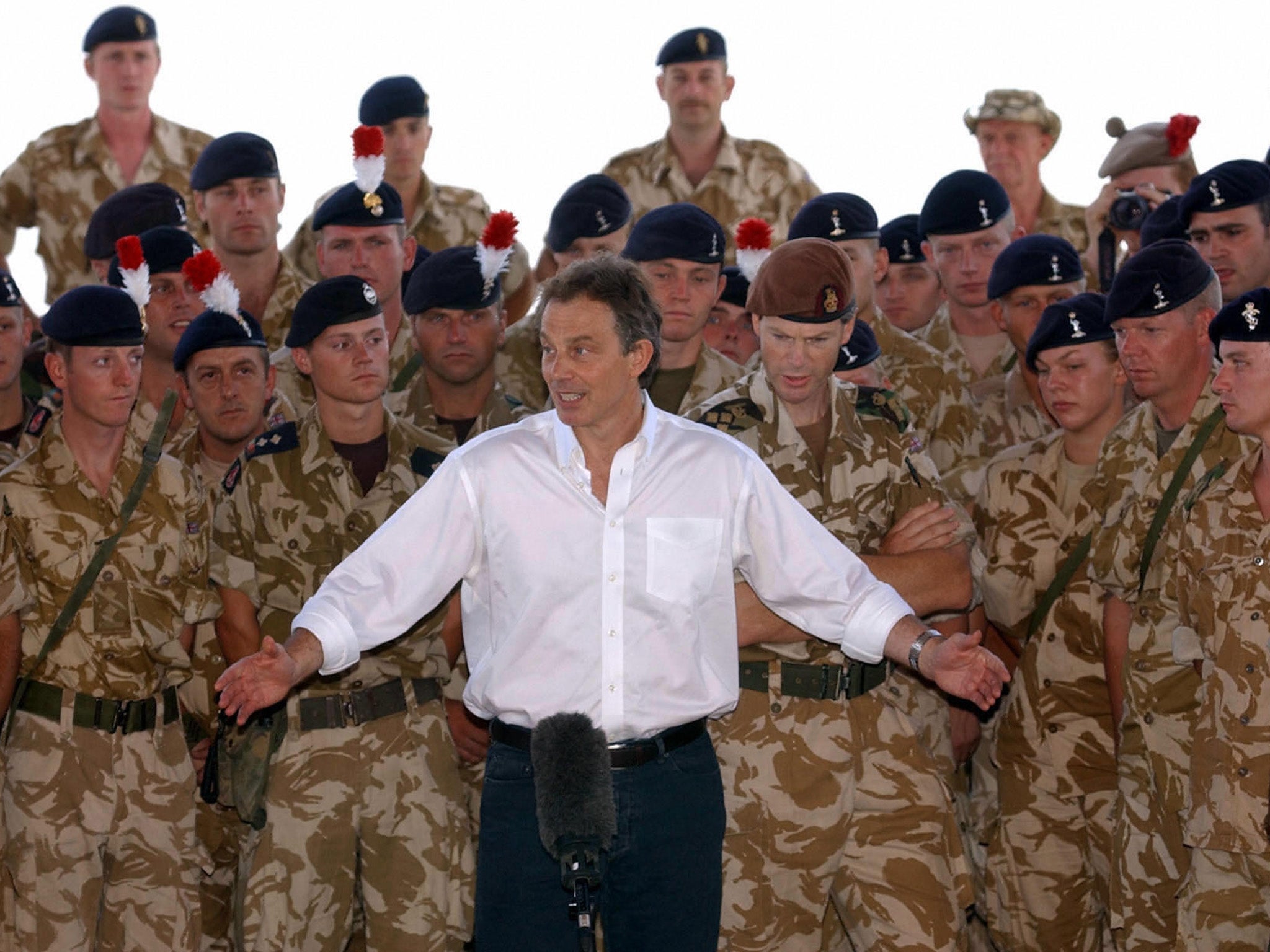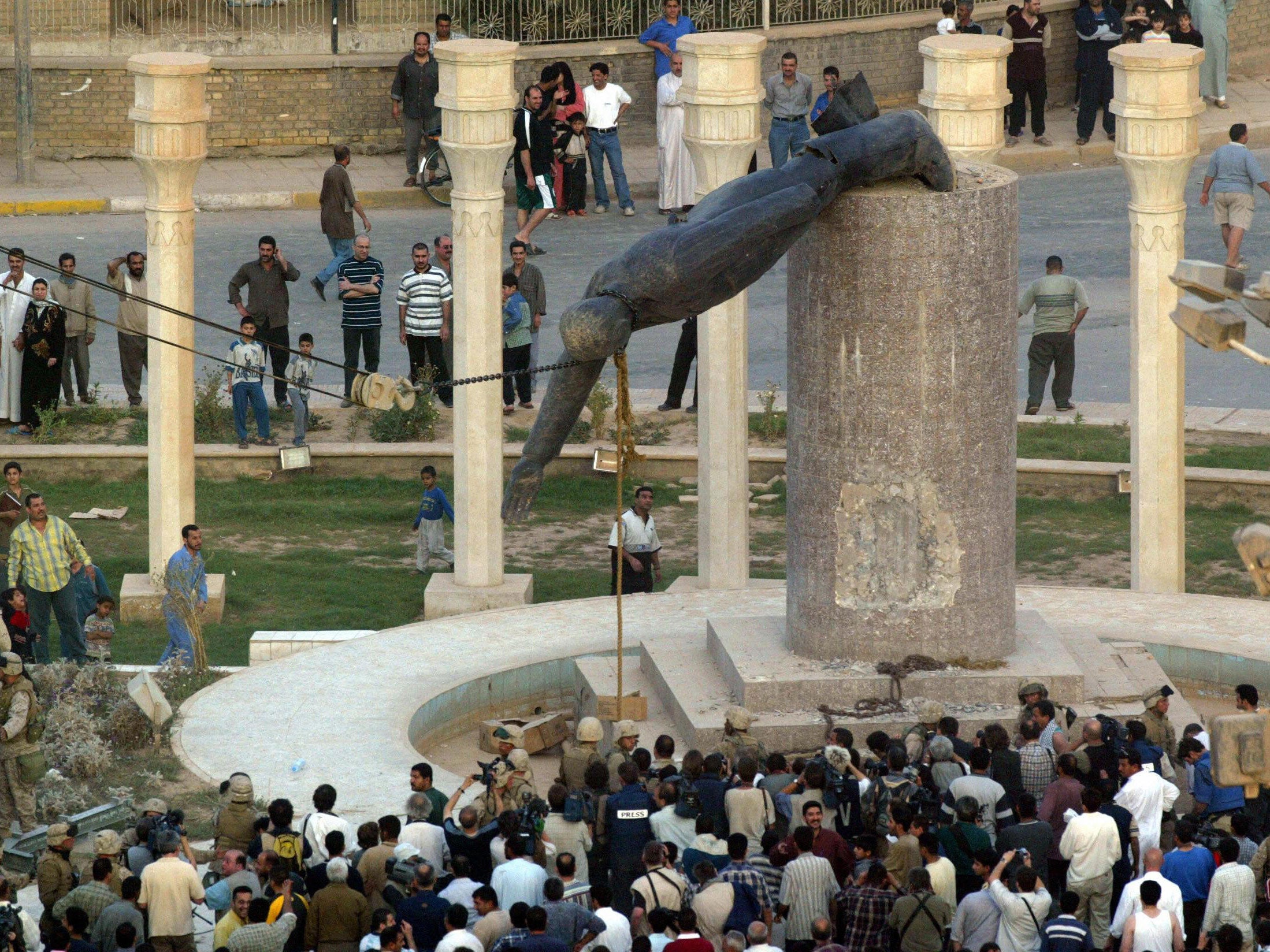Chilcot report: International Criminal Court says it will not investigate Tony Blair – but might prosecute soldiers
Court says decision to invade is outside its remit but will use report to look at evidence of soldiers' human rights abuses

Your support helps us to tell the story
From reproductive rights to climate change to Big Tech, The Independent is on the ground when the story is developing. Whether it's investigating the financials of Elon Musk's pro-Trump PAC or producing our latest documentary, 'The A Word', which shines a light on the American women fighting for reproductive rights, we know how important it is to parse out the facts from the messaging.
At such a critical moment in US history, we need reporters on the ground. Your donation allows us to keep sending journalists to speak to both sides of the story.
The Independent is trusted by Americans across the entire political spectrum. And unlike many other quality news outlets, we choose not to lock Americans out of our reporting and analysis with paywalls. We believe quality journalism should be available to everyone, paid for by those who can afford it.
Your support makes all the difference.Tony Blair will not be put on trial for war crimes but British soldiers could be, prosecutors at the International Criminal Court have said.
Ahead of the long-awaited publication of the Chilcot report on Wednesday, lawyers at the court have ruled out prosecuting the former prime minister for war crimes because it says the decision to go to war is outside its remit.
Instead the ICC says lawyers will comb through the 2.6 million word document for evidence of war crimes committed by British troops during the war.
The decision has outraged the families of the 179 British soldiers who were killed during the eight year conflict. They blame Mr Blair for dragging the UK into the war under false pretences.
In a statement to the Sunday Telegraph, the ICC said it had begun a “preliminary examination” of claims of abuse by British soldiers from human rights lawyers on behalf of Iraqi victims.
A spokesperson for the Office of the Prosecutor at the ICC in The Hague said: “We will take note of the Chilcot report when released in the context of its ongoing preliminary examination work concerning Iraq/UK.
“A preliminary examination is not an investigation but a process aimed at determining whether reasonable basis exist to open an investigation.
“As already indicated by the Office in 2006, the 'decision by the UK to go to war in Iraq falls outside the Court’s jurisdiction’.”

The statement said the court was considering introducing a “crime of aggression” to deal with illegal invasions but stressed they could not apply it retroactively.
Roger Bacon, whose son Matt was killed by a roadside bomb in 2005, condemned the court's stance.
He told the Telegraph: “It is outrageous. It is double standards.
“These soldiers have gone out to do their best for us and here they are being hounded and yet the guy who took them there is not being looked at.
“That is completely wrong and disgusting.”
Last year, Labour leader Jeremy Corbyn said Mr Blair could be made to stand trial over the war – saying he believed the invasion was illegal.
He said: “We went into a war that was catastrophic, that was illegal, that cost us a lot of money, that lost a lot of lives.
“The consequences are still played out with migrant deaths in the Mediterranean, refugees all over the region.”

Speaking on Sky News' Murnaghan today, Mr Blair said: "I have said many times over these past years I will wait for the report then I will make my views know and I will express myself fully and properly.
"I'm not getting into the politics or the detail of it before we actually get it".
He has repeatedly denied lying in the run-up to the invasion in May 2003. In October 2015, he apologised for "mistakes" in the planning of the operation and said the intelligence they received was wrong but told CNN he found "it hard to apologise for removing Saddam".
He compared the invasion of Iraq with inaction in Syria saying the West had stood back while hundreds of thousands of people had been killed by President Bashar al-Assad and Isis.
An estimated 460,000 Iraqi civilians were killed in the conflict after a US-led invasion toppled the regime of Saddam Hussein in 2003.
The occupation officially ended in 2011 but the UK began operations in the country once more in 2014 to help Iraqi forces push back Isis which rose to prominence in the political vacuum following withdrawal.
Join our commenting forum
Join thought-provoking conversations, follow other Independent readers and see their replies
Comments